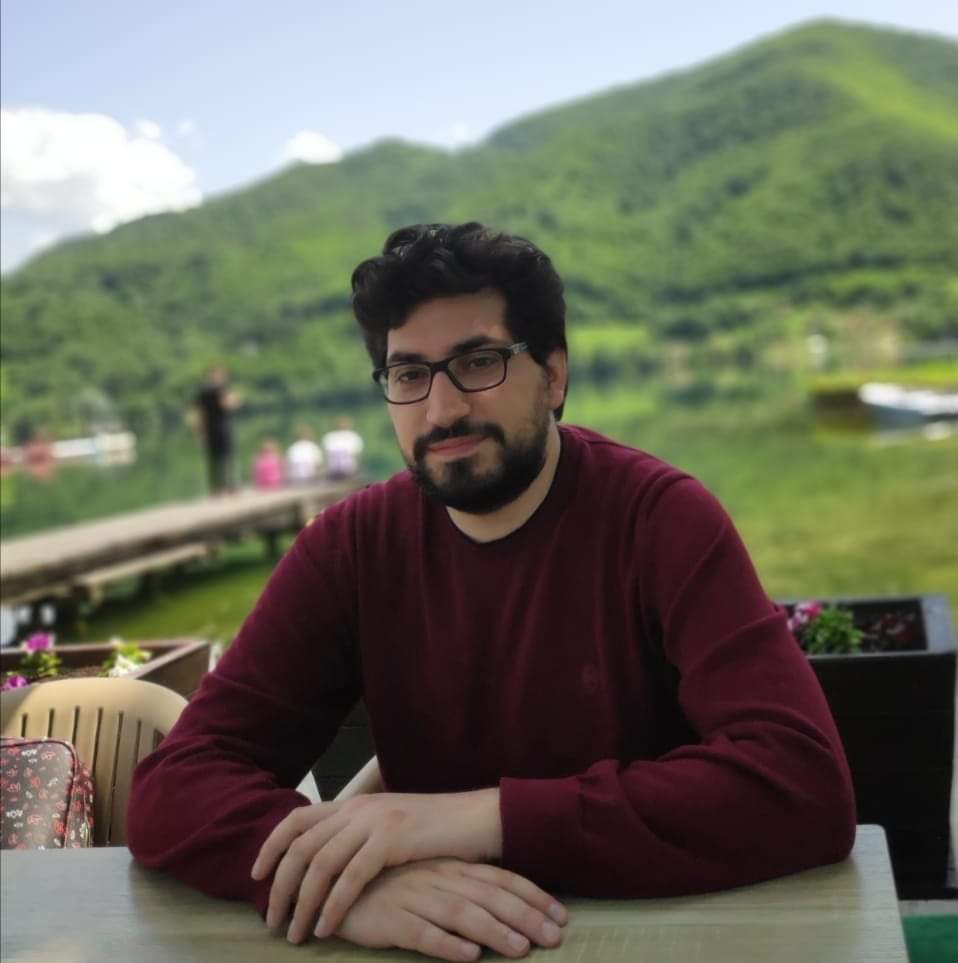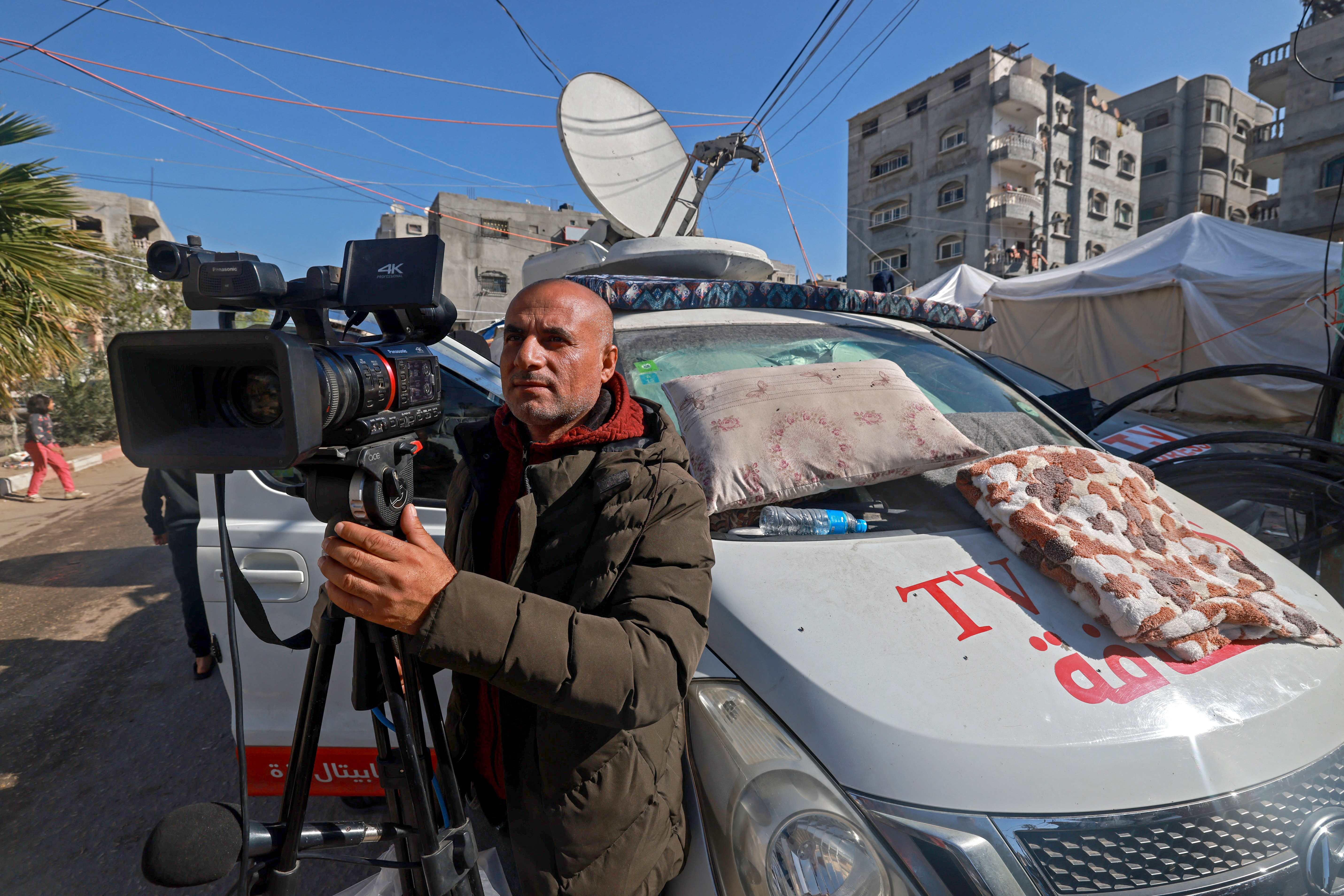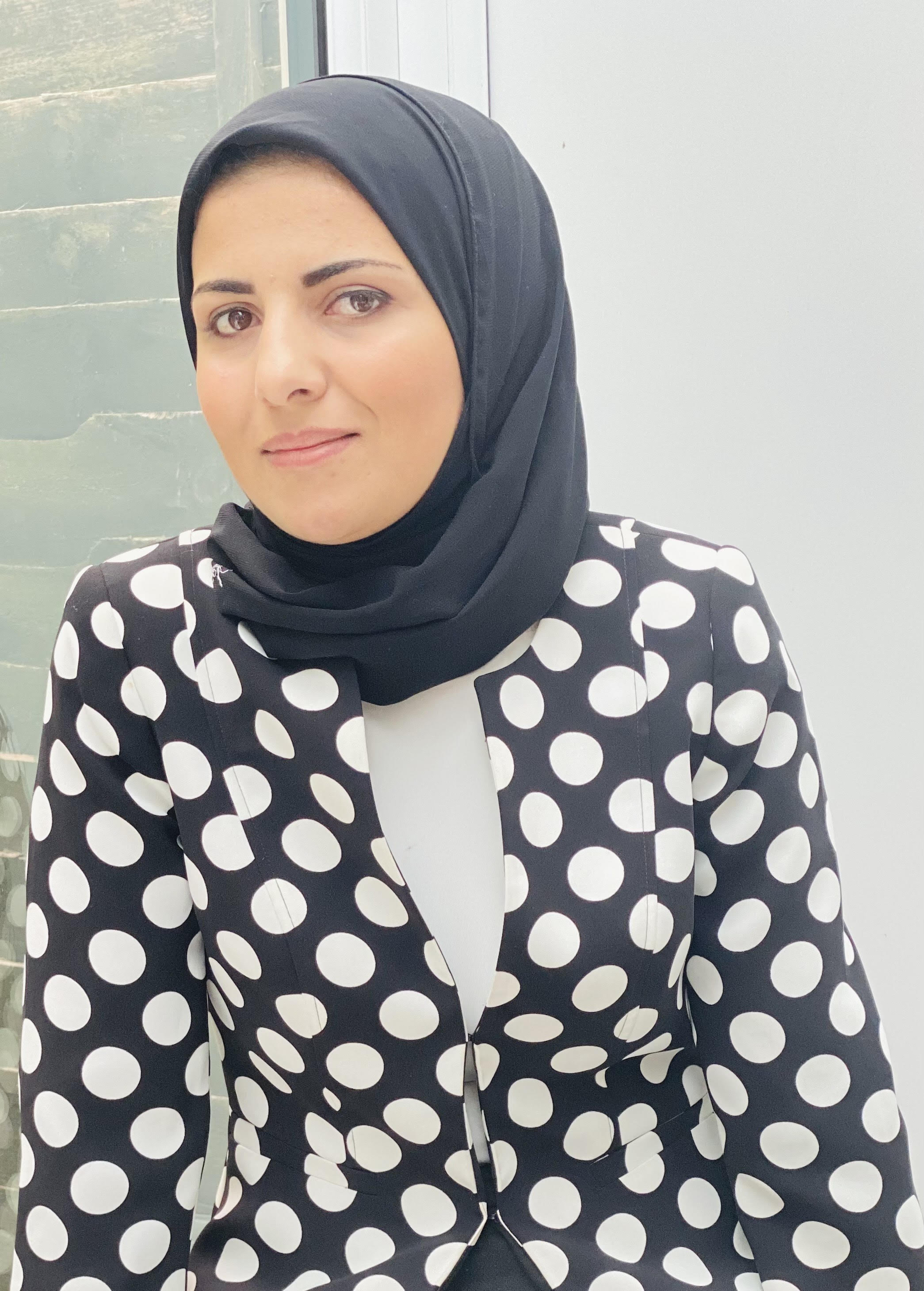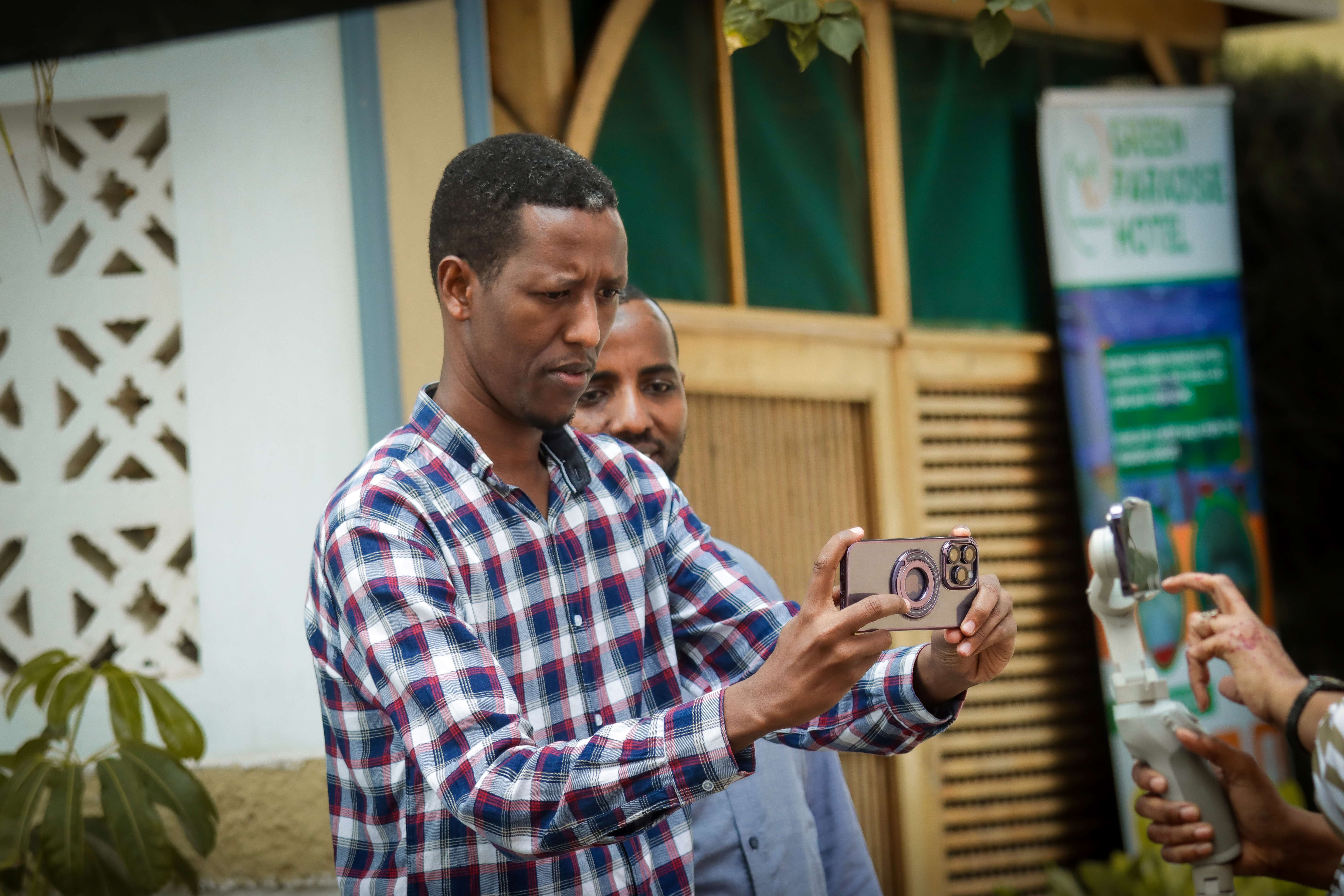Brazil’s mainstream media, in its unwavering support for Israel, is out of step with public and social media responses to the bombardment of Gaza
Brazil’s media houses were bitterly divided over Jair Bolsonaro’s authoritarian government which held power from 2019 to 2022, but they are united like never before over one issue - Bolsonaro’s unconditional support for Israel and its ongoing bombardment of the Gaza strip.
Indeed, almost without exception, Brazilian mainstream media has come out in complete support of the state of Israel since the Hamas attacks in the south of the country on October 7 during which around 1,400 Israelis were killed. Since then, Israel has responded with a relentless assault on Gaza, where it says members of Hamas are hiding, which has not let up since. More than 6,000 Palestinians have been killed in the onslaught, the majority of whom are women, children and the elderly.
Jair Bolsonaros administration was a strategic ally of both the Trump and Netanyahu governments in the US and Israel respectively. But in the period from 2019 to 2022, the media organisations Organizações Globo, Grupo Folha, the conservative O Estado de São Paulo and even Grupo Abril stood opposed the government.
The television networks Record, SBT and Rede TV took supportive stances of the government. The Bandeirantes Group had some equidistance. But, despite these divisions, 10 months since the inauguration of Luiz Inacio Lula da Silva (Brazil’s 39th President), uniformity has returned. With the horrifying prospect of a Palestinian genocide in sight, Brazil’s media have fallen into line with the US media.
Unity of Brazil’s media on this issue was immediately apparent in the early hours of Saturday, October 7. By adopting the word “terrorist” to describe the actions of Hamas and by failing to provide any context about the real conditions of people living in Gaza and the West Bank, the Brazilian media portrays Israel’s occupation and Palestinian resistance to it as a “conflict”, as if between equal sides.
Swallowing war propaganda
In the first 48 hours following the start of Operation Deluge in Al Aqsa (Hamas gave the desecration of Al Aqsa Mosque in Jerusalem as the main justification for its attack), Brazilian media described it as an “assault on our ally, Israel”. In doing so, they abandoned any trace of journalism and switched to reproducing war propaganda.
The large online news portals and television stations - including 24-hour news channels such as Globonews, Band News, Record News and the Brazilian version of Fox News, Jovem Pan - only started to platform any criticism of Israel after pressure from civil society organisations. But in terms of visibility, the pro-Palestinian side has been almost completely marginalised in Brazilian media.
This is in stark contrast to the approach of Brazil’s academic institutions. There are more than 30 Middle East research groups at Brazilian public universities. In international relations courses, the critical view of Zionism is majority and hegemonic. In media dissemination, however, it is as if we were in the Cold War with our news outlets merely reproducing the Voice of America. In this case, we see media outlets reproducing Israeli propaganda, disguised as journalism. This, even in a country with more than 16 million Arab descendants - and some in key positions of power.
This contradiction, along with the position of the Palestinian people, has only - barely - emerged in public discourse thanks to the efforts of pro-Palestinian organisations.
Brazil’s ruling elite
Compounding this stark contradiction is the composition of Brazil’s ruling class and the Arab presence within it. There is an absolute asymmetry in the information industry and the country's ruling elite.
Despite the Lula government’s economic team including those of Arab heritage, such as the Minister of Finance (Fernando Haddad), the vice-president and minister of Industry and Commerce (Geraldo Alckmin) and the Minister of Planning (Simone Tebet), the visibility of the Palestinian Cause and the historical context of an occupation over 75 years old is not explained in mainstream media.
Faced with what was seen as a “media siege” and “normalisation of genocide”, the reaction of Arab and Palestinian groups in Brazil was immediate. But the few spaces of pro-Palestinian commentary only came about as a result of pressure from civil organisations and social media campaigns and was not based on newsworthiness criteria.
This shows us two things. First, the ability of the Israel lobby, its neo-Pentecostal allies (one in three Brazilian adults is a follower of a conservative Christian sect) and the influence of the US embassy on newsrooms. Second, we see that it is possible to counter the pro-Western media narrative, as long as part of the demand is for higher journalistic standards.
Even propaganda has its limits
Doctor Salem Hikmat Nasser is a law professor at the Getúlio Vargas Foundation (FGV, São Paulo branch) and is one of the most visible Arab-Brazilian academics in contemporary Brazilian society.
A defender of the Palestinian cause, Nasser wrote an article, focusing on journalistic criticism, which was published in the newspaper, Folha de São Paulo. In his piece, titled “War, terror and seventive outrage when citing Hamas and Israel”, Nasser states that the São Paulo communications conglomerate labels the resistance in Gaza as “terrorism” but does not even classify the methods used by the Israeli military as state terror. The article had a high impact, as did the reaction from the far right.
Right-wing critics (mostly anonymously) signed a petition (9,000 signatures so far) calling on FGV to dismiss Professor Nasser. The allegation reads: “He promotes hatred, supports and justifies terrorist acts. Terrorism, in addition to being a heinous act, is the manifestation of hatred in its lowest, most violent and bloodthirsty form.”
The response to this action was a petition (12,000 signatures so far) opposing it, calling for “academic freedom and in defence of Professor Salem Nasser”. The social media feeds from the Palestinian Arab Federation of Brazil (FEPAL) and the Palestine Latin Forum (FLP) also expanded considerably after 72 hours of Israel's response to the resistance forces.
More than 20 days after Operation Deluge in Al Aqsa, the Brazilian public media space is divided - certainly not unanimous as is the case for mainstream media. The majority position in alternative media - mostly to the left and in support of the Lula government - is in support of Palestine.
The presence of pro-Arab forces in the hegemonic media remains secondary, but at least it is visible.
Bruno Lima Rocha Beaklini is a Brazilian journalist and professor of international relations
The views expressed in this article are the author’s own and do not necessarily reflect Al Jazeera Journalism Review’s editorial stance
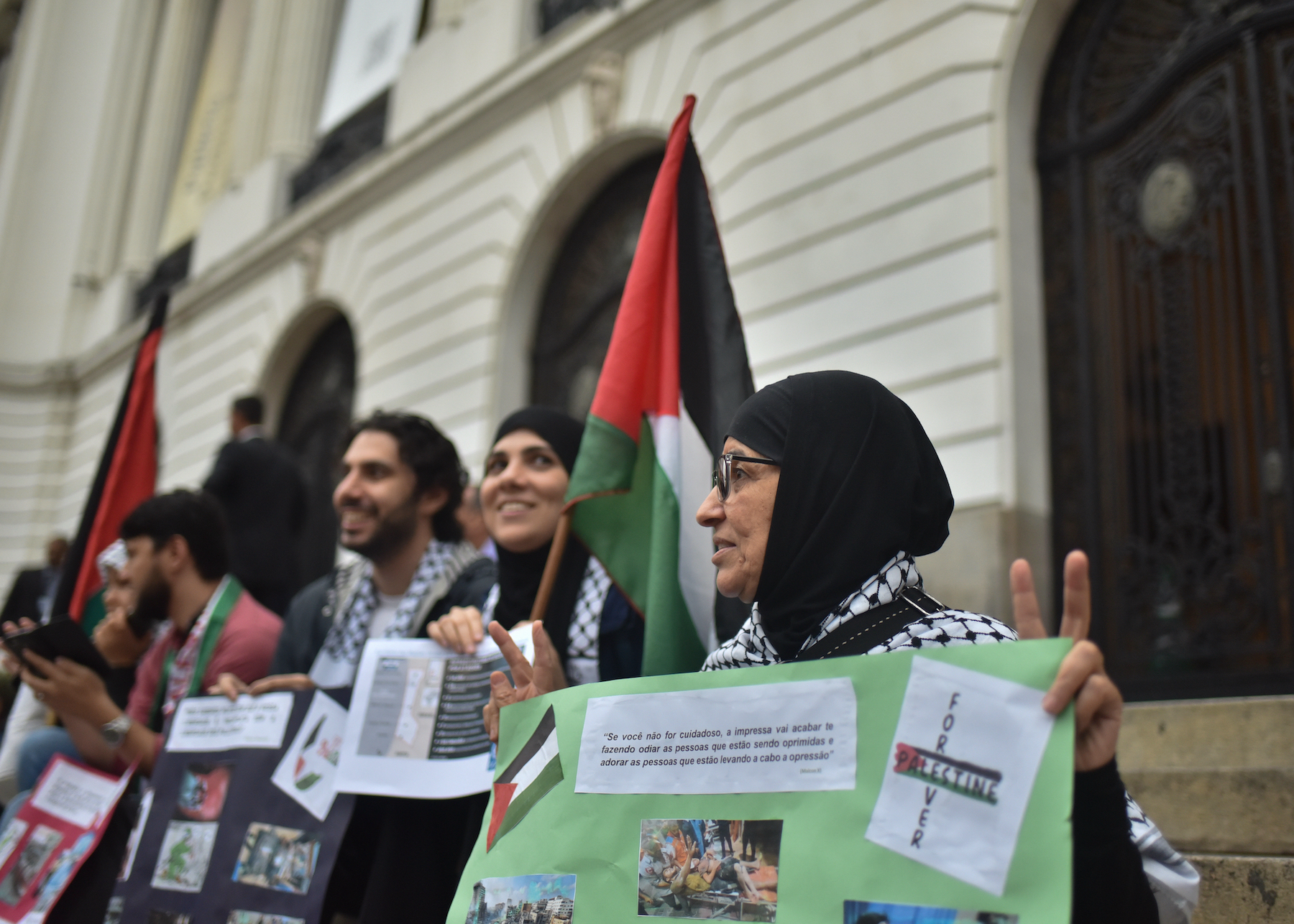
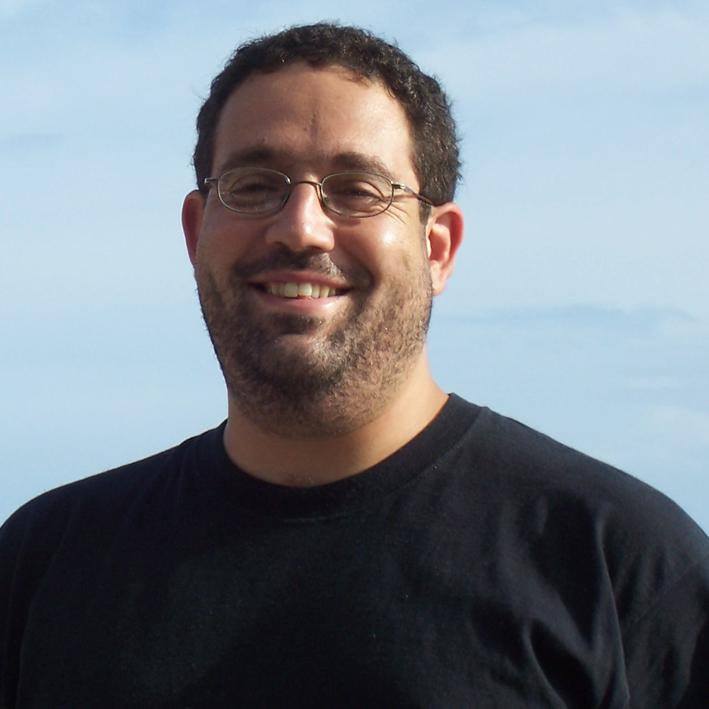
![Palestinian journalists attempt to connect to the internet using their phones in Rafah on the southern Gaza Strip. [Said Khatib/AFP]](/sites/default/files/ajr/2025/34962UB-highres-1705225575%20Large.jpeg)



























